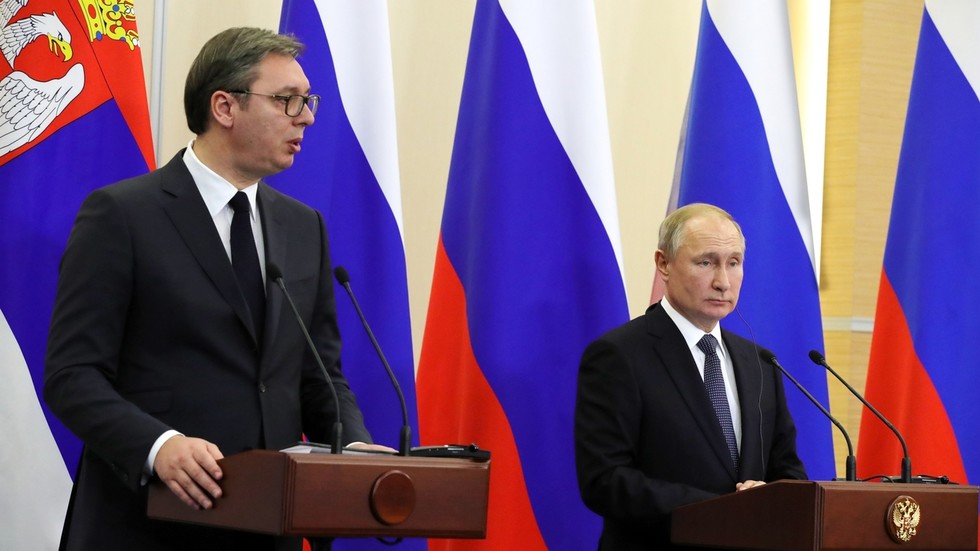Russia has expanded its energy exports to include eastern markets like China, but that does not mean it has given up on customers in Europe. President Putin recently met with his Serbian counterpart Aleksandar Vucic at the Black Sea resort of Sochi, where he expressed Moscow’s intent to boost cooperation with Belgrade.
“Cooperation between Russia and Serbia is a truly strategic partnership in all areas; we continuously maintain an intensive political dialogue,” Putin noted at a joint press conference with Vucic following their talks on Wednesday.
Putin mentioned in his remarks that Russia is the largest gas supplier to Serbia, saying that the volume of gas exports to Serbian consumers exceeded 2.5 billion cubic meters (bcm) last year.
“We have agreed to increase the capacity of underground gas storage in Serbia from 750 million cubic meters to two billion cubic meters,” Putin said, according to the Kremlin’s official website, stressing that the construction of a gas transit system that extends the TurkStream pipeline in southern Europe will strengthen energy security for the entire Balkan region.
The first and second strings of TurkStream will have a throughput capacity of 15.75 billion cubic meters each. The 930-kilometer (578 mi) long twin gas pipeline project is headed by Russia’s Gazprom, and extends from beneath the Black Sea in Russia, reaching Turkey and extending westward to Europe.
The first string is set to deliver gas to Turkey while the second string is intended for southern and southeastern Europe.
Following the talks with President Vucic, President Putin stressed that the Serbian section of the gas pipeline is almost ready, but said Bulgaria is deliberately delaying its construction.
Bulgarian Prime Minister Boyko Borissov has denied any deliberate delays, saying the construction started late, roughly three months ago, and that Sofia follows European Union procurement rules to ensure the project would not be blocked by Brussels.
“Bulgaria follows the EU procedures. Each has a right to search alternative pathways, and we are looking for an alternative diversification,” UrduPoint quoted Borissov as saying on Thursday, citing Bulgaria's bTV channel.
Turkish Stream is designed as an analog to the abandoned South Stream pipeline, which was a $18.8 billion project that was planned to carry 63 bcm of Russian gas annually to Bulgaria, Serbia, Hungary, Slovenia and Austria. South Stream was cancelled in 2014 following the obstacles posed by Bulgaria and the EU, and it faced complications with European sanctions imposed on Russia.







 The Mine Action Agency of Azerbaijan (ANAMA) reported on Thursday the discovery of a significant amount of explosives in the Khojavand district of ...
The Mine Action Agency of Azerbaijan (ANAMA) reported on Thursday the discovery of a significant amount of explosives in the Khojavand district of ...
 Iran has refuted reports of alleged damage to Shimon Peres Negev Nuclear Research Centre located southeast of Dimona, Israel, during the recent air...
Iran has refuted reports of alleged damage to Shimon Peres Negev Nuclear Research Centre located southeast of Dimona, Israel, during the recent air...
 Iran’s Foreign Minister, Hossein Amir-Abdollahian, has labeled a foiled Israeli drone attack in certain parts of the country as a "failure" for Isr...
Iran’s Foreign Minister, Hossein Amir-Abdollahian, has labeled a foiled Israeli drone attack in certain parts of the country as a "failure" for Isr...



